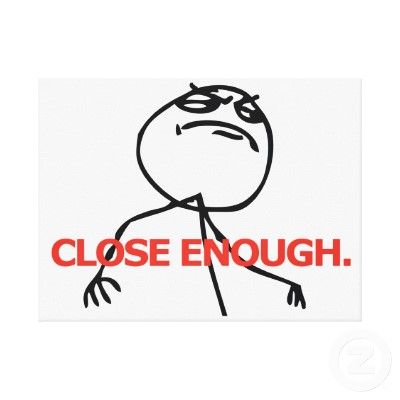In fact I will go 1 step further and offer my opinion. 0.9999... + 9 definitely preserves all of the infinite 9s in the decimal places. 0.9999... * 10 may not preserve them all, effectively losing the 9 in the infinity place. In Chad Sexington 's proof, the assumption is that 9.9999... has preserved all of infinity of the 9s in the decimal place, which to me implies it is more accurate to say that 9 has been added rather than 10 has been multiplied.
*edit* Argh, I should have said I would go 0.9999... steps further. Opportunity missed.
[DOUBLEPOST=1355341504][/DOUBLEPOST]
*edit* Argh, I should have said I would go 0.9999... steps further. Opportunity missed.
[DOUBLEPOST=1355341504][/DOUBLEPOST]
No, the answer to this question informs us to the answer on that one.I thought the fundamental question was: do we have free will, or are we merely meat robots?






 ). I suppose the only argument I have left to make is that if you agree 1/3 + 1/3 + 1/3 = 3/3, do you then think 3/3 is only approximately 1? Or do you think .333... is only approximately 1/3? If you accept that 1/3 = .333... then surely you must accept that 3/3 = .999... and therefore .999... = 1, not approximately but absolutely.
). I suppose the only argument I have left to make is that if you agree 1/3 + 1/3 + 1/3 = 3/3, do you then think 3/3 is only approximately 1? Or do you think .333... is only approximately 1/3? If you accept that 1/3 = .333... then surely you must accept that 3/3 = .999... and therefore .999... = 1, not approximately but absolutely.